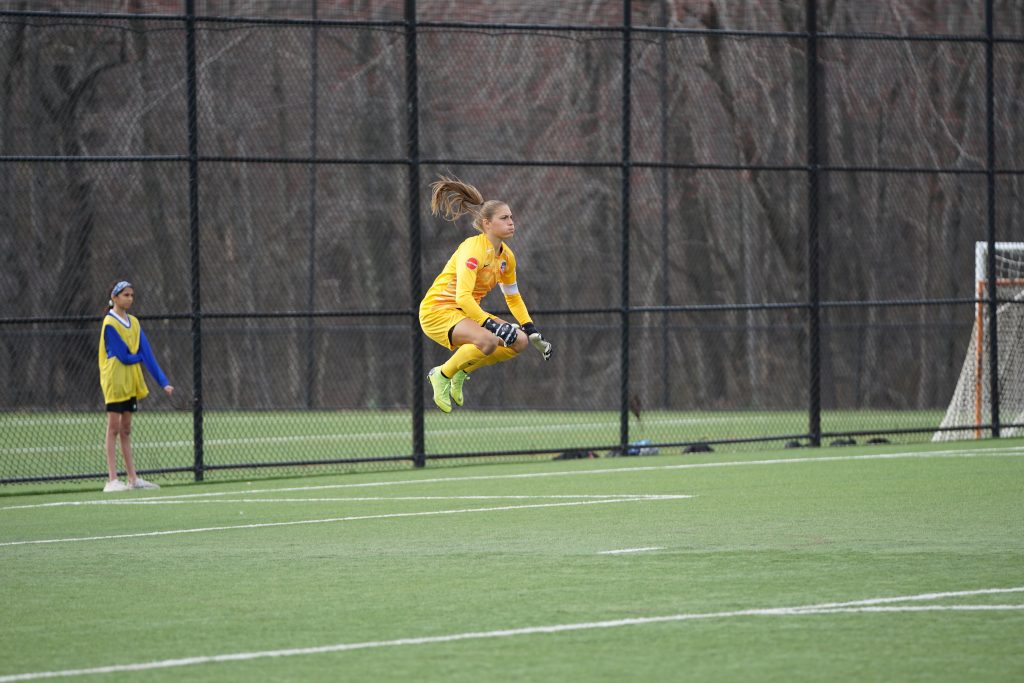Creating a soccer team that consistently achieves success requires more than just talent on the field. It demands a strong foundation of values and principles that every player, coach, and member of the team organization adheres to. In this comprehensive guide, we’ll explore the fundamental elements that contribute to the success of a soccer team. These principles, including Discipline, Respect, Work Ethic, Communication, and Sacrifice, form the bedrock upon which championship-winning teams are built. By understanding and embodying these values, players and parents alike can contribute to the growth and triumph of their soccer team.
Discipline

Discipline: The Cornerstone of Excellence
Discipline is the heartbeat of a successful soccer team. It encompasses a wide range of behaviors and habits, from punctuality at training sessions to adhering to dietary guidelines and following coaching instructions. Beyond these basics, discipline extends to on-field conduct, emphasizing teamwork, tactical awareness, and adherence to the game plan. This unwavering commitment to structure and order ensures that every player is aligned with the team’s mission and objectives.
1. Structured Training Regimens: Building Champions
The disciplined soccer team operates on meticulously crafted training routines. These sessions are designed not only to enhance individual skills but also to foster team cohesion, enabling players to function as a seamless unit during matches. The training regimen encompasses a holistic approach, incorporating elements such as fitness drills, technical exercises, tactical simulations, and mental conditioning. These carefully curated sessions are tailored to address the team’s specific strengths and areas needing improvement. Through consistent and focused training, players not only refine their abilities but also forge a collective identity that sets them apart on the field.
2. Nutritional Discipline: Fuelling Success
Proper nutrition is the fuel that powers a successful soccer team. Players are encouraged to adhere to specific dietary plans, avoiding foods that could hinder performance. This nutritional discipline is a critical component of maintaining peak physical condition throughout the season. The team’s nutritionists work closely with players to craft individualized meal plans that optimize energy levels, enhance recovery, and support overall well-being. Emphasis is placed on a balanced intake of macronutrients, micronutrients, and hydration strategies tailored to each player’s unique requirements. By prioritizing proper nutrition, the team ensures that players are primed to perform at their best, not only in matches but also during rigorous training sessions.
3. Off-Field Discipline: Upholding Professionalism
Discipline extends beyond the confines of the pitch and training ground. Off-field conduct is equally crucial in upholding the team’s reputation and integrity. Players are expected to embody professionalism in all aspects of their lives, demonstrating respect for teammates, coaches, opponents, and the broader soccer community. This includes maintaining a strong work ethic in personal fitness regimes, adhering to rest and recovery protocols, and actively engaging with community outreach initiatives. By instilling a culture of discipline off the field, the team reinforces the values that define them as champions.
4. Adaptability within Discipline: A Key to Success
While discipline provides a structured framework, it also allows for adaptability and creativity within defined boundaries. Players are encouraged to express themselves and explore their unique strengths within the team’s tactical framework. This balance ensures that while adhering to the established principles, players have the freedom to innovate and respond dynamically to the evolving demands of the game. This adaptive discipline is what sets exceptional teams apart, allowing them to consistently outperform and adapt to varying match situations.
In essence, discipline forms the bedrock of a successful soccer team. It extends beyond the physical realm, encompassing mental fortitude, tactical acumen, and a holistic approach to player development. By instilling a culture of unwavering commitment, structured training, nutritional excellence, off-field professionalism, and adaptive creativity, a soccer team sets the stage for excellence, both on and off the field.
Respect

Respect: Elevating the Beautiful Game
Respect is the bedrock upon which the beautiful game of soccer thrives. It extends far beyond the confines of the field, permeating every aspect of the sport. A team that embodies respect not only honors the game itself but also elevates the experience for everyone involved.
1. Sportsmanship and Fair Play: Honoring the Essence of Soccer
In the realm of soccer, sportsmanship and fair play are the essence of the game. It’s an acknowledgment that competition can be fierce, yet always underpinned by mutual respect. Players are not just athletes; they are ambassadors of the sport, entrusted with upholding its integrity.
Within a respectful team, players are encouraged to demonstrate exemplary sportsmanship, even in the heat of competition. This includes acknowledging opponents’ achievements, accepting referee decisions without dispute, and refraining from unsportsmanlike conduct. By doing so, players embody the true spirit of soccer, proving that winning is meaningful only when it’s earned with honor.
2. Leadership in Respect: Setting the Standard
The role of captains and team leaders cannot be overstated in fostering an environment of respect. They are the torchbearers of the team’s values, responsible for upholding the highest standards of conduct on and off the field.
A captain’s leadership in respect goes beyond verbal instruction. It’s about leading by example, demonstrating unwavering sportsmanship, and treating every individual involved in the game with the dignity they deserve. This includes peers, coaches, opponents, and officials. By consistently exhibiting respect, captains inspire their teammates to follow suit, creating a culture of honor that defines the team.
3. Respect for Diversity: Embracing Differences, Building Unity
Beyond the boundaries of the game, a respectful soccer team embraces diversity in all its forms. This includes differences in backgrounds, experiences, and perspectives. Recognizing that a team is a mosaic of unique talents and strengths, players come together as one, fortified by their shared love for the sport.
Respect for diversity not only enriches the team’s collective experience but also cultivates a deeper understanding of the global nature of soccer. It fosters an environment where every player’s contribution is valued, regardless of their origin or background. This inclusivity strengthens the team’s bond, uniting players in their pursuit of excellence.
4. Supporting Each Other: The Foundation of Team Unity
In a team steeped in respect, support for one another is non-negotiable. Players uplift their teammates, celebrating victories and offering encouragement during challenges. This solidarity forms the backbone of team unity, creating a tightly-knit group that stands strong, both on and off the field.
When one player succeeds, the entire team triumphs. When one faces adversity, the collective strength of the team rallies behind them. This sense of camaraderie amplifies the team’s effectiveness, allowing them to face any challenge with unwavering resolve.
Conclusion:
In the realm of soccer, respect is the cornerstone upon which greatness is built. It transcends the boundaries of the field, infusing every action and interaction with meaning and integrity. A team that embodies respect not only elevates the sport but also enriches the lives of its players and everyone involved. By embracing sportsmanship, demonstrating leadership in respect, celebrating diversity, and fostering unity through support, a soccer team becomes a force to be reckoned with, leaving a lasting legacy in the annals of the beautiful game.
Work Ethic

Work Ethic: The Drive for Excellence
A relentless work ethic is the cornerstone upon which successful soccer teams are built. It permeates every facet of the sport, from the coaching staff to the players on the field and even extends to the support personnel.
1. Coaching Excellence: Guiding Stars to Their Apex
Coaching excellence is the fulcrum on which a team’s success pivots. A great coach is not just a tactician but a mentor, a motivator, and a visionary. They are the guiding force behind the players’ journey towards their full potential.
Great coaches possess the ability to identify and nurture the unique strengths of each player, understanding that a cohesive team is an amalgamation of diverse talents. They provide personalized guidance, setting realistic yet challenging goals for every individual. This fosters a culture of continuous growth and development, where players are inspired to push their boundaries and evolve into their best selves.
Furthermore, an exceptional coach instills a sense of collective purpose, emphasizing that the success of the team supersedes individual achievements. They create an environment of trust, where players feel comfortable taking risks and learning from their mistakes. Through constructive feedback and open communication, coaches empower players to take ownership of their development, instilling in them the belief that they can overcome any obstacle.
2. Players’ Commitment to Excellence: Forging Champions Through Grit and Determination
The heart and soul of any successful soccer team lie in the players’ unwavering commitment to excellence. This commitment transcends mere physical exertion; it is a mindset, a way of life.
Players are the embodiment of the team’s work ethic. They are expected to approach every training session and match with an insatiable hunger for improvement. This means pushing beyond comfort zones, embracing challenges, and persisting even when faced with adversity. It requires a level of dedication that goes beyond the ninety minutes on the field, extending to their habits, lifestyle, and overall mindset.
Championship-winning mentality is forged through hours of rigorous training, refining skills, and honing tactical awareness. It is about understanding that talent alone is not enough; it is the relentless pursuit of excellence that sets champions apart. Players must be willing to put in the extra effort, to stay late after practice, to work on weaknesses, and to support teammates in their quest for improvement.
Moreover, players with a commitment to excellence understand the value of teamwork. They recognize that their success is intertwined with the success of their teammates. This selflessness creates a culture of mutual support, where players lift each other up and celebrate each other’s achievements.
In essence, a team’s work ethic is the crucible in which champions are forged. It is the amalgamation of coaching excellence and players’ unwavering commitment to excellence that propels a team to extraordinary heights. With this unyielding determination at its core, a soccer team transcends the realm of mere competition, evolving into a force to be reckoned with in the beautiful game.
Communication

Communication: The Language of Success
In the realm of soccer, effective communication is tantamount to physical prowess. It transcends mere verbal exchanges, encompassing a complex web of gestures, movements, and even unspoken understandings among players. The ability to convey intentions, make split-second decisions, and harmonize with teammates forms the very heartbeat of a high-performing soccer team.
1. On-Field Communication
On the pitch, where every second counts, communication is the lifeblood of a well-functioning team. It’s not just about shouting directives; it’s about creating a shared language that enables seamless coordination.
- Verbal Calls and Shouts: Players must articulate their intentions with clarity and confidence. From calling for a pass to signaling a change in strategy, effective verbal communication keeps everyone in sync.
- Body Language and Gestures: Soccer is a universal language, and body movements speak volumes. A simple nod, a wave of the hand, or a pointed finger can convey intricate instructions or express encouragement.
- Spatial Awareness: Understanding where teammates are and where they’re likely to be is a form of communication in itself. This spatial intelligence allows players to position themselves optimally for both attack and defense.
- Quick Decision-Making: Split-second decisions are the essence of soccer. Effective communication enhances a player’s ability to process information rapidly and execute the right move in the blink of an eye.
- Anticipation and Preemption: Seasoned players develop an almost telepathic understanding of their teammates’ movements. They anticipate actions, preempting passes or runs to maintain fluidity in play.
- Non-Verbal Cues: From eye contact to a tap on the shoulder, these subtle signals convey intent without a word spoken. They serve as a silent but powerful means of communication during fast-paced matches.
2. Coach-Player Communication
The dynamic between coaches and players is pivotal in translating strategy into action on the field. Effective coach-player communication is a delicate balance between verbal instructions and nonverbal cues.
- Strategic Briefings: Coaches impart their vision and game plan through clear and concise instructions. They delineate roles, formations, and strategic objectives, providing players with a roadmap for success.
- Feedback and Reinforcement: Constructive feedback is a cornerstone of player development. Coaches offer insights on individual performance, identifying strengths to leverage and areas for improvement.
- Motivation and Encouragement: Beyond tactics, coaches inspire their players, instilling confidence and a winning mindset. They serve as mentors, nurturing mental fortitude and resilience.
- Tactical Adjustments: During matches, effective coaches communicate adjustments to formations, strategies, and player positions. These changes are often conveyed through a combination of verbal commands and strategic substitutions.
- Video Analysis and Visualization: Modern technology plays a vital role in coach-player communication. Video analysis allows coaches to provide visual feedback, reinforcing lessons and highlighting areas for improvement.
- Capturing the Team’s Vision: Coaches must ensure that every player understands and embraces the team’s overarching goals. This shared vision fosters a sense of unity and purpose among the players.
By understanding and honing the art of communication, both on the field and in the coach-player dynamic, a soccer team can elevate their performance to extraordinary heights. The ability to convey intentions swiftly and clearly is the bedrock of success in the beautiful game.
Sacrifice

Sacrifice: Putting the Team First
In the world of soccer, the concept of sacrifice is an undeniable truth. It is a principle that transcends individual accomplishments and propels the team towards collective victory. This selflessness is the linchpin of success, where players willingly set aside personal glory for the greater good of the team.
1. Selflessness on the Field
On the field, selflessness manifests in various forms, all crucial to the team’s success. Players must possess the adaptability to mold their playing style to meet the demands of the game. This may involve a star striker tracking back to help in defense, a midfielder pushing forward to bolster the attack, or a winger dropping deeper to assist in build-up play. In these moments, individual players become integral pieces of a larger puzzle, seamlessly fitting together to create a cohesive and dynamic unit.
Moreover, the ability to make split-second decisions that prioritize the team’s objectives over personal achievements is a hallmark of a selfless player. A forward, with an opportunity to shoot, might opt for an assist if it means securing a vital goal for the team. Similarly, a defender may put their body on the line to block a shot, knowing that conceding a goal would be a greater loss than any momentary discomfort.
Understanding the ebb and flow of a match, and recognizing when to seize the initiative or relinquish control for the team’s benefit, demonstrates a profound level of soccer intelligence. These acts of selflessness ripple through the team, creating an environment where each player is empowered to contribute their unique strengths to the collective effort.
2. Team Unity and Camaraderie
Sacrifice is not solely an individual endeavor; it is the cornerstone of team unity and camaraderie. When players wholeheartedly commit to the team’s cause, a powerful sense of belonging and purpose permeates the squad. Shared goals and a mutual understanding of each other’s roles foster a tight-knit community, one that is unbreakable even in the face of adversity.
This camaraderie extends beyond the final whistle, influencing every aspect of a team’s journey. In training sessions, players push each other to excel, recognizing that their individual growth directly contributes to the team’s overall development. In moments of celebration, whether after a hard-fought victory or a well-earned goal, the joy is amplified by the knowledge that it is a triumph for the entire team.
Equally significant are the moments of challenge and setback. When faced with adversity, a team that embraces sacrifice stands resilient, drawing strength from their collective commitment. It is in these moments that true leaders emerge, rallying their teammates and reminding them of the shared purpose that binds them together.
In the end, sacrifice is the lifeblood of a successful soccer team. It transforms a group of talented individuals into a formidable force, capable of overcoming any obstacle in pursuit of victory. Through selflessness on the field and a culture of unity off it, a team can rise to unparalleled heights, leaving an indelible mark on the beautiful game.



